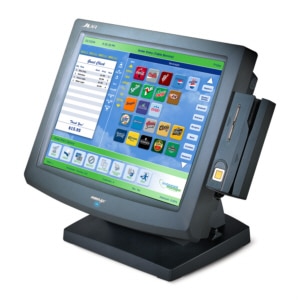For those of us covering the cyber security beat, there haven’t been many feel-good stories coming out of the federal government in – well – forever. Even before the advent of nation state sponsored hacking, the news was mostly of the federal government’s bloated and unwieldy IT infrastructure, byzantine procurement systems and the difficulty of attracting top talent away from private sector employers who could offer more pay, more autonomy and a better working environment. Then came the gut wrenching display of offensive prowess by the U.S.’s main enemies – nations like China, Russia and Iran. Those stories started, in earnest, with news about operations like Titan Rain (in 2003) and continue to the present day. The problem has gotten so bad that the military’s preferred euphemism for Chinese hackers – “advanced persistent threat,” or “APT” has become part of the nomenclature of the IT security world far beyond […]
Windows
Heartbleed: Technology Monoculture’s Second Act
Say ‘technology monoculture’ and most people (who don’t look at you cross-eyed or say ‘God bless you!’) will say “Microsoft” or “Windows” or “Microsoft Windows.” That makes sense. Windows still runs on more than 90% of all desktop systems, long after Redmond’s star is rumored to have dimmed next to that of Apple. Microsoft is the poster child for the dangers and benefits of a monoculture. Hardware makers and application developers have a single platform to write to – consumers have confidence that the software and hardware they buy will “just work” so long as they’re running some version of Windows. The downside, of course, is that the Windows monoculture has also been a boon to bad guys, who can tailor exploits to one operating system or associated application (Office, Internet Explorer) and be confident that 9 of 10 systems their malicious software encounters will at least be running some version of the […]
Veterans Targeted In Attack Using IE 10 Zero Day
Visitors to the web site of the Veterans of Foreign Wars (VFW) are being targeted in an attack that exploits a previously unknown hole in Microsoft’s Internet Explorer 10 web browser, according to warnings Thursday by security firms. Some visitors to the web site of the Veterans of Foreign Wars (VFW), vfw[dot]org, were the victim of a ‘watering hole’ attack that takes advantage of a previously unknown ‘use-after-free’ vulnerability in Microsoft’s Internet Explorer 10 web browser. The VFW site was hacked and then altered to redirect users, silently, to a malicious website programmed to exploit vulnerable versions of IE 10 on systems running 32 bit versions of the Windows operating system. The VFW did not immediately respond to e-mail and phone requests for comment. According to a write-up by the security firm FireEye, the vulnerability allows the attacker to “modify one byte of memory at an arbitrary address” stored […]
US CERT Warns About Point-of-Sale Malware
With news of the breach of big-box retailer Target Inc. still in the headlines, the U.S. Computer Emergency Readiness Team (CERT) issued a warning about the danger posed by malicious software targeting Point of Sale (POS) systems. CERT issued an advisory (TA14-002A) on Thursday asking POS owners to take steps to secure the devices, and telling consumers to beware. The warning comes after a string of reports that suggest that malware attacking point of sale systems is on the rise. In December, researchers from Arbor Networks said they had detected an “active PoS compromise campaign” to steal credit and debit card data that used the Dexter and Project Hook malware. Dexter is a Windows-based program that was first discovered in December, 2012 by Seculert, an Israeli security firm. It is still not known whether malware played a part in the huge theft of credit card data from Target Inc. That […]
NSA Toolbox Included Hacks For Juniper, Cisco, Dell
The German magazine Der Spiegel made headlines this week with its story detailing the US National Security Agency’s (NSAs) offensive hacking capabilities. The story is based on classified NSA documents absconded with by former contractor Edward Snowden and lays bare a Webster’s Dictionary full of classified hacking tools and programs. Among the highlights of the story: + The NSA developed and deployed a wide range of hacking tools that could compromise hardware from leading IT and networking equipment makers including Cisco Systems, Juniper Networks and the Chinese vendor Huawei and Dell Inc. + The NSA tools were designed to provide persistent access that allowed the NSA to monitor activity on the compromised endpoint, avoid detection by third party security software and survive software and firmware updates. One such tool, DEITYBOUNCE, provided persistent access to Dell’s PowerEdge servers by “exploiting the system BIOS” and using “System Management Mode to […]



